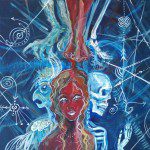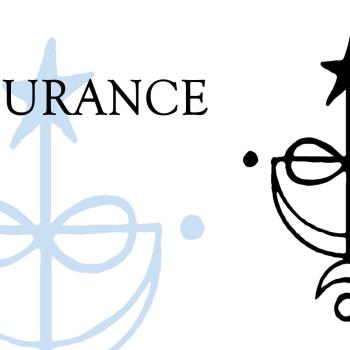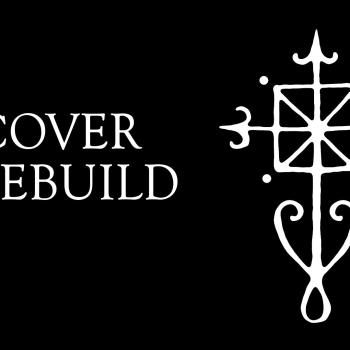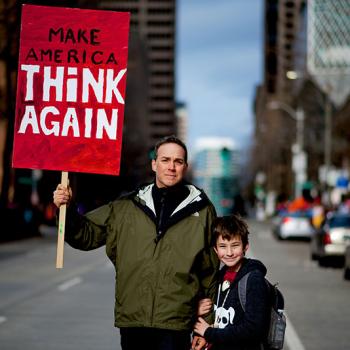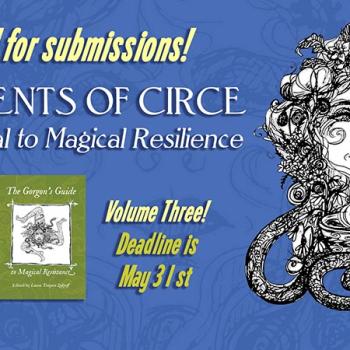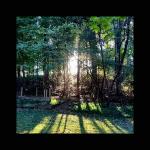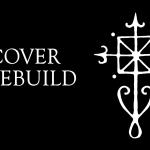It was not religious ideas that separated us first, but simply survival.
When a group of people thrived in a given area (despite of or in the face of weather, illness, and other propensities of nature), eventually there would come a point where the balance between people and resources would become in jeopardy, and part of the group would need to splinter off and go to a new area. Being nomadic – migrating with the seasons and animals, was one way to to prolong the inevitable, but as we learned to farm and domesticate, more room and resources were needed. In fact, all animals that naturally live in communal organizations, from horses, wolves, and lions, to bees, meerkats, and dolphins, hive off to protect resources and stimulate genetic diversity.
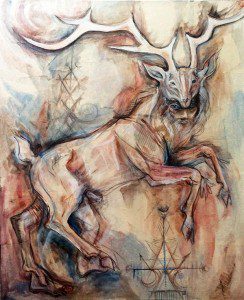
This natural development leads to a crucial fundamental change in how a group experiences the world around them. Imagine that for several generations, your people had lived in a certain valley. Over time, they became familiar with its landscape, landmarks, and the natural cycle of its weather patterns, flora and fauna. All of these things influence how a person/people sees the world, and how we develop our mythology: where we came from, what is proper protocol, what we believe.
Then a group heads off over a small mountain ridge in search of more resources. They find a new place to live, but the landscape, the weather, the features, and the animals differ, even if it’s just a few miles apart. Instead of a placid lake for water, they have a mountain spring. With a higher elevation comes different weather cycles, different plants, and different animals, encompassing both new resources as well as new risks. The splintered off group started with the same mythology as the main group, but there is new protocol to learn, new dangers to fear, and things that were important in the valley aren’t so important when compared to the new things they learn in order to survive. Surviving in snow becomes an important fact of life, versus negotiating a boggy marsh. The god of the lake may become or be replaced by the goddess of the spring, and the burial rites may change from burying to “sky” because the harder ground won’t allow it.
So with time, while these people may have come from the same source, their mythology and practices change as their living experience changes to adapt with their environment and its related conditions and factors. No matter what religion you look at, the root of deity is to explain how and why we came to be, how we manage, how we interpret the world around us, and how we look at the future. All of which changes depending on the conditions of the environment we live in, morphing to create new mythology and new gods. The gods create us, and we create them in turn, because nothing is static in this world. We take our stories, myths, and folklore with us – across mountains, oceans, cities, and space – and through that the gods morph, change, and evolve. So in turn, how we observe, identity, practice, believe in, and work with those gods changes as well.
If you’re thinking, “sure ok, but that was olden times…thousands of years ago, but NOW we’ve established this all, it won’t change….” – Nope.
We may not be making a perilous journey of our ancestors into a new landscape with very little knowledge or supplies, but the environment still continues to change and influence our experience. From refugees fleeing disaster to survive, and immigrants seeking new opportunities to thrive, to new sprawling suburbia and urban upheaval in our cities from gentrification, the world continues to change on us. Any time you move up or down the economic ladder, if you live close to work and use public transport, or drive a great distance every day, move to a new neighborhood or move back to an old one – your experience changes and influences how you see the world around you. Even within a single city, depending on where you live and work within it, it will affect your view – just as similarly as the natural landscape. You evolve and grow – and so do your gods.
The problems arise when we fail to see this natural progression. OF COURSE my idea and experience of a particular deity may be quite different than yours. But that doesn’t make either idea or practice wrong. In fact, that makes them both even more right, and underlines the utmost need for fostering respect and understanding. The only way you can do it wrong is insist that someone else’s view or relationship with their deity is wrong because it’s not your way.
To which I say, perhaps considering evolving?



